EastSiders’ Kit Williamson says ‘being unapologetically queer’ takes power from those who want to ‘drag us back to the 50s’
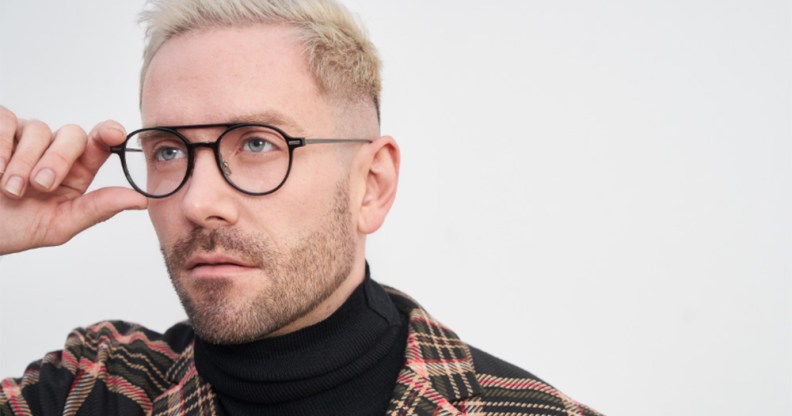
Kit Williamson is the creator and star of EastSiders. (PH)
Kit Williamson spoke to PinkNews about telling authentic queer stories, being a trans ally, and why we have Donald Trump to thank for the current “golden age” of bold and brave LGBT+ representation.
In 2012, Kit Williamson filmed the first two episodes of EastSiders in his apartment with a group of friends and released them to YouTube. They told a story about queer love and life, filled with nuanced, realistic characters whose sex lives were – as they are to many – integral to their being.
Quickly the series earned a reputation as the little queer show that could. A full first season was produced after Williamson raised funds on Kickstarter, and about seven years later, a fourth and final run has just debuted on Netflix, worldwide, to critical acclaim.
The final six episodes (still made with the help of crowdfunding) tie up the characters’ storylines, examining open relationships, sexual fluidity, LGBT+ parenting, femme-shaming and other topics in frank, direct fashion.
“I wanted to make a show that is unapologetically queer and sex positive,” Williamson tells PinkNews.
“I think it’s just really important that we start being unapologetic about who we are, because it’s a way of taking your power back and standing in defiance of the forces that want drag us back to the 1950s.”
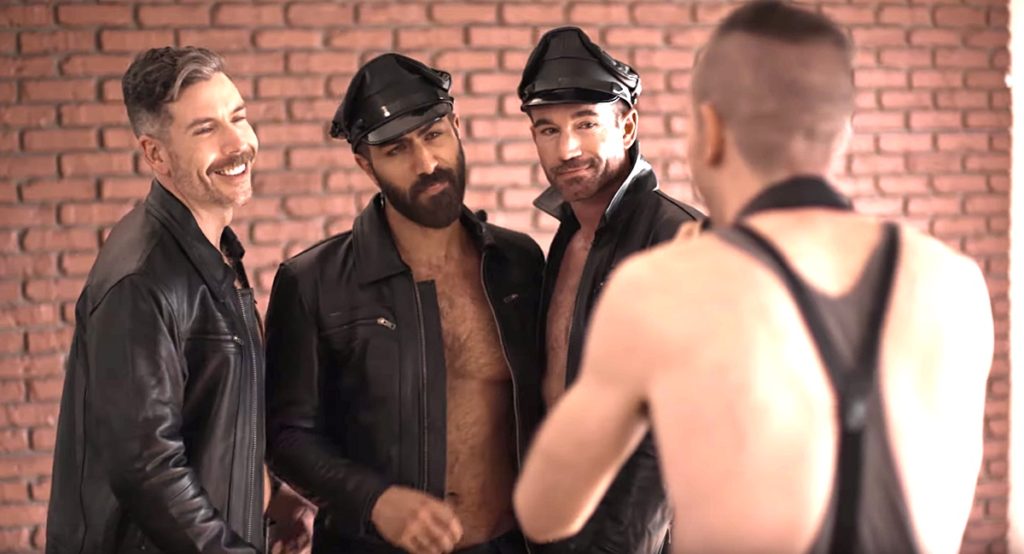
EastSiders fourth season continues its frank approach to sexuality. (Netflix)
For Williamson, his show has arrived during a “golden age” of queer TV. Not only have titans such as Pose, Orange is the New Black and Euphoria boosted the number of LGBT+ characters on screen to record levels, the representation we are now seeing feels more authentic and urgent, he explains.
“Representation has to be responsive to current events and the current social climate,” he says.
“Personally, my response to the current environment – of Donald Trump being the president of the United States and LGBT+ rights being under siege by the Republican Party – my response is a little radical.”
The White House’s continued attacks on trans and other minority rights are linked to “a newfound sense of responsibility and storytelling in the entertainment industry,” he continues.
“This is a man who announced his candidacy with a press conference where he called Mexicans rapists and murderers.
“The tone was set right there that he was going to attack and belittle anyone who was not a straight white cisgender man – the erosion of our rights, the constant attacks and belittling comments…”
On the set of EastSiders, the response to Trump’s America has manifested not just through plot, but in the hiring of even more LGBT+ talent. Season four welcomes Pose alum and trans actor Hailie Sahar and Buffy star Tom Lenk to an already talented queer cast, as well as a bevy of drag queens.
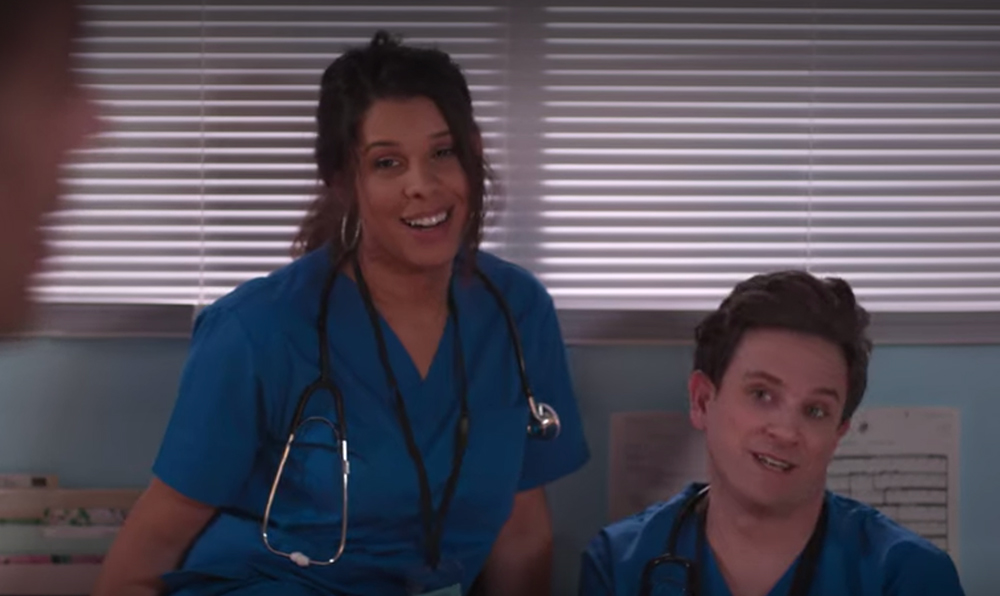
Trans actor Hailie Sahar joins the EastSiders cast for season 4, pictured here with Tom Lenk. (Netflix)
“I felt a responsibility, as the show has grown and gotten some resources behind it, to make inclusivity and diversity a huge priority. Especially in this last season – I finally have resources at my disposal in a way that I hadn’t before,” he explains.
I think that when you identify that a community is under attack, if you are an ally, your instinct should be to step up and do more to empower them.
Certainly queer communities are under attack, and not just from Washington. The past few years have seen an uptick in anti-trans rhetoric and violence on both sides of the Atlantic, a sad trend which has even pervaded parts of the LGB community.
“The transphobia that exists in the queer community is tragic to me,” Williamson says.
“It’s like, you know firsthand what it feels like for somebody to deny your identity and to belittle your existence, so to reduce it to a quote unquote ‘choice’ – you know what that feels like. Why would you do that to somebody else? How dare you.”
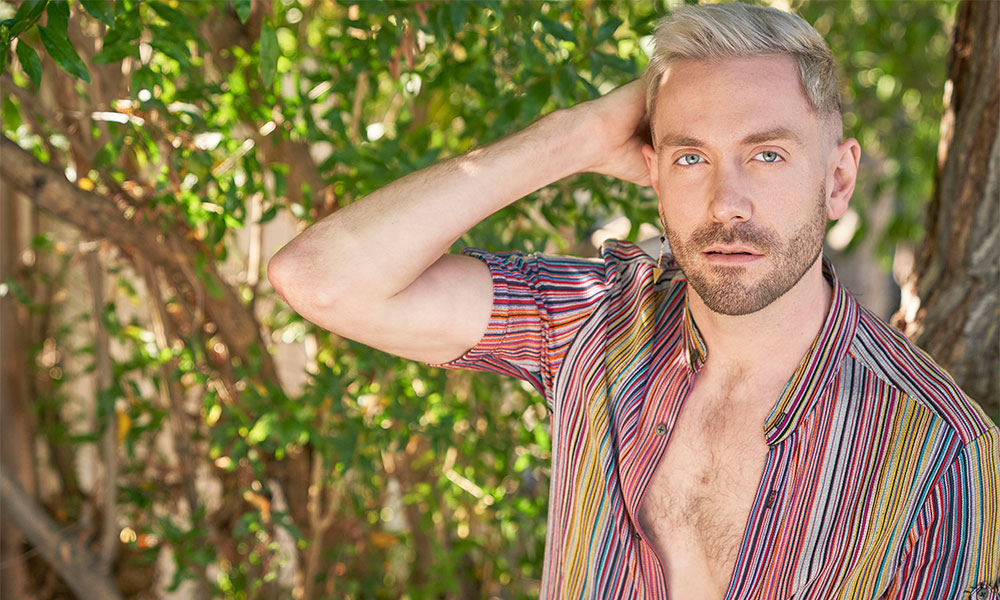
Kit Williamson being unapologetically queer. (PH)
He says that those incapable of showing empathy to trans and non-binary people are pitiful.
“I feel really sorry for you, I think you’re pathetic.
“I do think that it’s a very small amount of people making a disproportionate amount of noise.
“But the people who want to oppress us want to oppress all of us, make no mistake. Once they’re done opressing trans people, they’re going to come for you next.”
Another community that EastSiders has tried to empower are those living with HIV. In season four, two characters subtly reveal that their status is undetectable, including Douglas, played by Drag Race star Willam.
“I worked with the LA LGBT Centre and we decided that the thing that would be most impactful would be if the characters’ undetectability wasn’t a storyline at all, and was just a casual revelation for the audience,” Williamson explains.
Another key plot line in the latest batch of episodes is Ian’s “hot girl summer.” Throughout the first three seasons, the character – played by Williamson’s real-life husband John Halbach – has been in back-to-back relationships with women. But in the final run, the audience’s presumption that he is straight is turned on its head as he enjoys flings with people of all genders.
Again, the revelation isn’t salacious, nor is it a coming out story. “Obviously Ian’s known who he was this entire time,” Williamson says. “He’s a man in his thirties, by that time you’re probably pretty acquainted with what turns you on.”
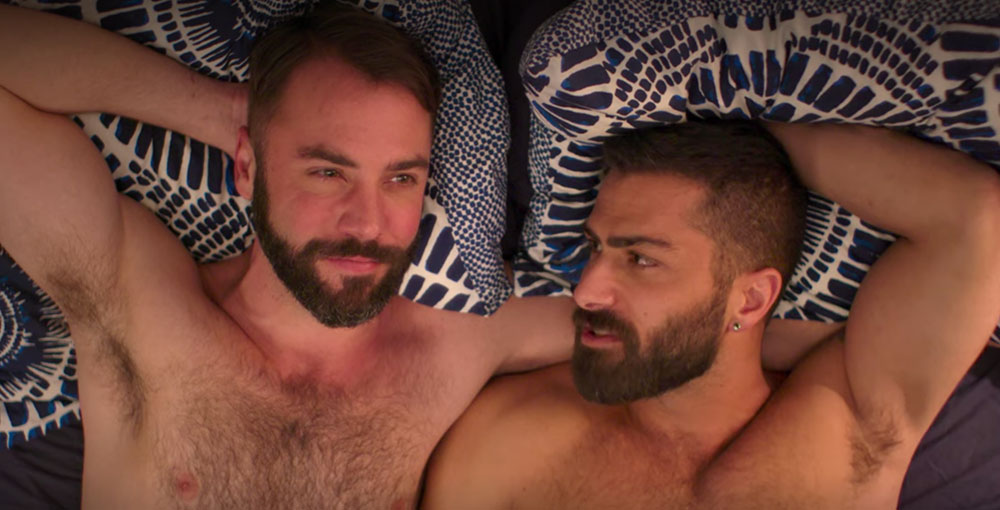
Ian (Jon Halbach) enjoys a ‘hot girl summer’. (Netflix)
Ian’s fluid sexuality is, in part, an attempt to bring more representation to the screen. But Williamson is also careful that his character’s don’t try to speak for an entire community.
“He’s just a person, you know. Something that is important to me with all of the characters in the show is not telling anybody how to be, it’s not advocating for open relationships over monogamy for example.”
“I want to represent as many kinds of people as I can within the queer community. I think this season is the most inclusive ensemble that that we’ve had and I’m really proud of that, but I would also say that no one show can represent the entirety of the LGBT+ rainbow. It’s too much pressure to put on a story.”
Williamson has been coy about what comes next for him, now that EastSiders is over. But whatever his future holds, it seems certain to be, as he put it, “unapologetically queer.”
“I don’t really spend much time worrying about what straight people think,” he laughs when I ask if he is bothered about winning mainstream popularity.
“I’m from Mississippi, so I ran out of f***s to give about conservative straight people as a teenager.”
He says that in the LA creative scene he now calls home, “straight people are certainly welcome, but by and large we’re marching to our own beat.”
“At a certain point, if you’re constantly worrying about what straight people are thinking, then it really gets in the way of telling authentic honest stories.”
EastSiders is available to stream on Netflix.

